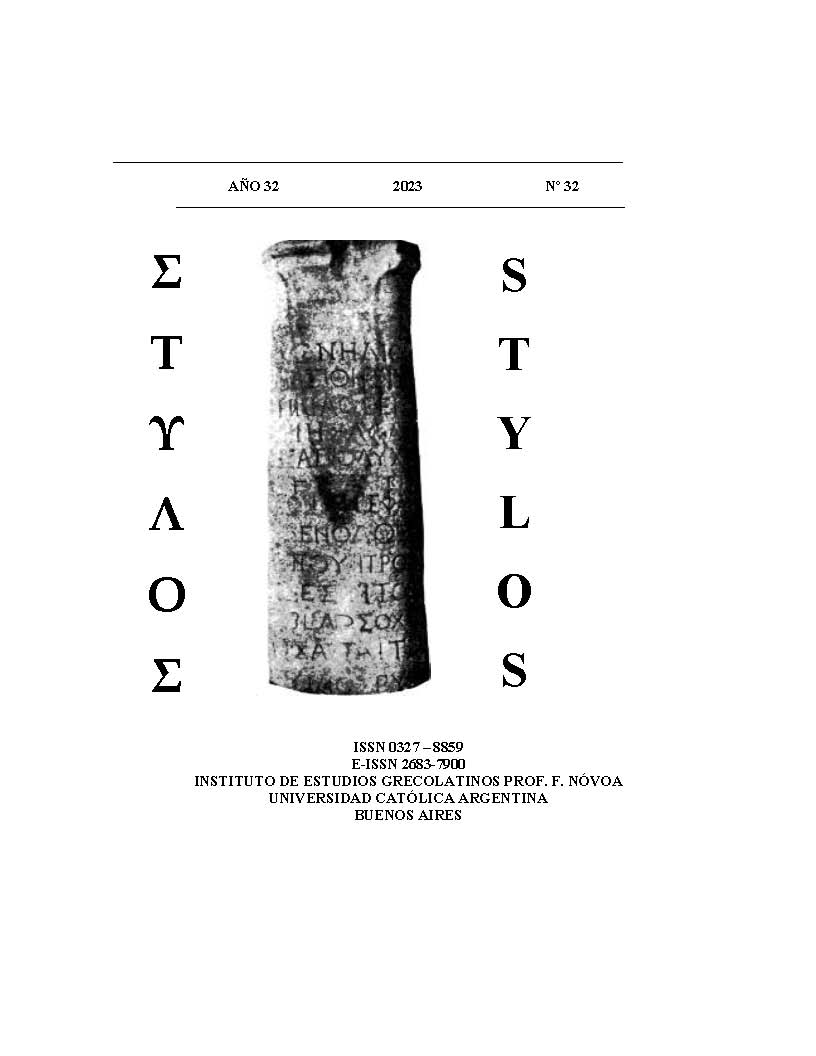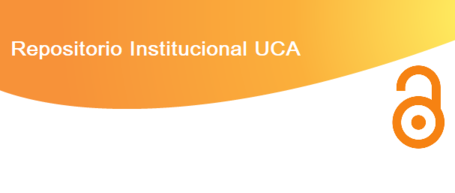Poetología, persuasión y conocimiento en Platón
DOI:
https://doi.org/10.46553/sty.32.2023.p7-46Keywords:
Plato, persuasion, knowledge, drama, poetryAbstract
The purpose of this article is (i) to show that in the dialogues some dramatic details often advance the philosophical argument (and its understanding) and that (ii) the kind of explanation that the characters provide is always given against a particular dramatic background that is not trivial. On the side of the "poetological" consideration, I will briefly focus on the episode of the cicadas in the Phaedrus and try to show how this episode serves as an introduction to the philosophical debate on persuasion and the value of knowledge and truth for a correct persuasive procedure. I will argue that Plato is interested not only in examining the conditions of legitimate persuasive discourse, but also in showing that not any kind of discourse is persuasive to any person. Although in his view "true" rhetoric is identified with dialectic, Plato is aware that rhetoric (and thus persuasion), as it was understood in public discourse, may be more "practical" than dialectic, as Plato himself understands it (in the Phaedrus and other dialogues).
Downloads
References
BOERI, M. D., ¿Serías capaz de hablar si nadie te respondiera? Filosofía y drama en Platón, Berlin: Logos Verlag, 2023.
CENTRONE, B., “Introduzione”: V-LX. En M. NUCCI, Platone. Simposio (Testo a fronte. Traduzione e commento di M. N. Introduzione di B. C.), Torino: Einaudi 2009.
DESTRÉE, P., HERRMANN, F.-G. (eds.), Plato and the Poets, Leiden-Boston, Brill, 2011.
FORD, A. L., “Plato‟s two Hesiods”: 133-154. En G. BOYS-STONES, J. H. HAUBOLD (eds.), Plato and Hesiod, Oxford: Oxford University Press, 2010.
GAISER, K., Platone come scrittore filosofico. Saggi sull’ermeneutica dei dialoghi platonici (Con una premessa di Marcello Gigante), Napoli, Bibliopolis, 1984.
GIULIANO, F. M., Platone e la poesia. Teoria della composizione e prassi della ricezione, Sankt Augustin: Academia Verlag, 2005.
GRAZIOSI, B., 2010. “Hesiod in classical Athens: Rhapsodes, orators, and Platonic discourse”: 111-132. En G. BOYS-STONES, J. H. HAUBOLD (eds.), Plato and Hesiod, Oxford: Oxford University Press.
GRISWOLD, C. L. JR., Self-Knowledge in Plato’s Phaedrus, New Haven and London: Yale University Press, 1986.
HACKFORTH, R., Plato’s Phaedrus (Translated with an Introduction and Commentary by R. H.) Cambridge: Cambridge University Press, 1997.
HALLIWELL, S., The Aesthetics of Mimesis, Princeton: Princeton University Press, 2002.
MCCOY, M., Plato on the Rhetoric of Philosophers and Sophists, Cambridge: Cambridge University Press, 2008.
MERCIER, H., SPERBER, D., The Enigma of Reason, Cambridge, Massachusetts: Harvard University Press, 2017.
PLANINC, Z., Plato through Homer. Poetry and Philosophy on the Cosmological Dialogues, Columbia and London: University of Missouri Press, 2003.
RHODES, J. M., Plato’s Erotic Dialogues, Columbia and London: University of Missouri Press, 2003.
ROSSETTI, L. “Il dialogo socratico come unità comunicazionale „aperta‟”: 33-52. En G. MAZZARA, M., NARCY, L., ROSSETTI, (eds.) Il Socrate dei dialoghi (Seminario palermitano del gennaio 2006), Bari: Levante Editori, 2007.
ROWE, C. J., Plato. Symposium (Edited with and introduction, translation and commentary by C. J. R.) Bristol: Aris & Phillips, 1998.
ROWE, C. J., Il Simposio di Platone (Cinque lezioni sul dialogo con un ulteriore contributo sul Fedone e una breve discussione con Maurizio Migliori e Arianna Fermani), Sankt Augustin: Academia Verlag, 1998a.
SANTA CRUZ, M. I., CRESPO, M.I., Platón, Fedro (introducción, traducción y notas de M. I. S. C. y M. I. C.), Buenos Aires: Losada, 2007.
SCHOFIELD, M., Plato. Political Philosophy, Oxford: Oxford University Press, 2006.
SHEFFIELD, F.C.C., Plato’s Symposium. The Ethics of Desire, Oxford: Oxford University Press, 2006.
TULLI, M., “Platone, il proemio del Teeteto e la poetica del dialogo”: 121-133. En M. TULLI (a cura di) L’autore pensoso. Un seminario per Graziano Arrighetti sulla coscienza letteraria dei Greci, Pisa-Roma: Fabrizio Serra Editore, 2011.
ZAFIROPOULOS, C.A., Socrates and Aesop. A Comparative Study of the Introduction of Plato’s Phaedo, Sankt Augustin: Academia Verlag,
Downloads
Published
How to Cite
Issue
Section
License
Copyright (c) 2024 Marcelo D. Boeri

This work is licensed under a Creative Commons Attribution-NonCommercial-ShareAlike 4.0 International License.






